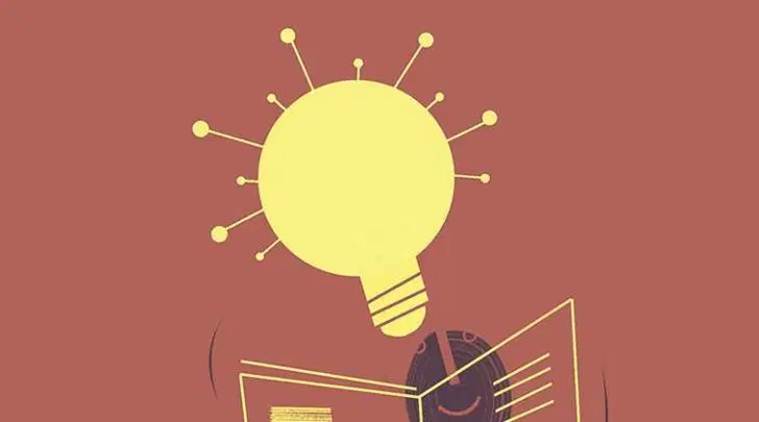
The Indian Express
Post-Covid order should uphold equality, secularism and democratic principles
Keeping the macro perspectives in view, the new world should have unswerving commitment to egalitarianism, secularism and democratic principles.
by Yashwant SinhaA new world is bound to emerge from the present corona crisis. But what will be the new world order like? The present one, already in shambles, has failed in dealing effectively with the pandemic. The World Health Organisation (WHO) has not covered itself with glory. The WHO’s understanding of the situation and the manner in which it dealt with it has been called into question by many — the US has even stopped funding.
As the world looks on, the virus is spreading dangerously all over the world with 185 countries affected, the total number of infected people standing at 52,37,508 and over 3,35,805 dead so far. We are still far from an antidote. Global and national economies are collapsing like ninepins. People, especially the poor everywhere, are suffering as never before. Nobody in the international community seems concerned at the tragedy unfolding in countries like Yemen and Sudan. Indeed, the so-called world leaders are at their wits end or have no time to spare given their national concerns.
The political system, especially in a democracy, should ideally debate the role of the government in serving the needs of the citizens even in these trying times. Asking questions and holding the government accountable are the stuff democracy is made of. Similarly, the world order should be questioned about its role in tackling the pandemic. Nations must also prepare themselves as the world enters unchartered territory. This is the time to think nationally and prepare to face the process of global transformation as it inevitably begins. Those who think of these issues first will take the lead, others will follow. India has to decide where it wants to stand.
Everything is halted as of now, including lives, economy and hope. Most of us are desperate and dependent on the physician, dietician, statistician, economist and healer for the time being — the fact remains that everything is in a quandary. We have no expertise to quantify the large-scale losses caused by the global lockdown, and figure out the numbers needed to deal with the miseries knocking at every door. Nature has scripted a new chapter for the world to adopt new ways to work or perish.
While the post-truth era is not over, it is prudent to recall how it has produced leaders and beliefs that make a mockery of reason, science and statecraft. The challenge posed by COVID-19 cannot be overcome by their hollow claims and misjudged action. Barring exceptions, the world has governments largely represented by people who care little or not at all about democratic principles, nationally or internationally. They are driven by their own wild dreams and have no patience with dissenters. See what is happening to activists and journalists in Kashmir and other parts of the country. So, evolving a consensus is not going to be easy!
As the world is suffering unprecedented losses, the burden of “absurd government culture” has to get offloaded. On the verge of collapse, humanity now needs to reclaim the not-so-old world wisdom that prominently relied on scientific temperament and judicious statecraft.
There are four or five areas we must concentrate on in the post-COVID world. Internationalism will have to be brought back to the centre stage. Nations and leaders cannot be allowed to act wilfully or ill-treat global institutions. Simultaneously, global institutions must repair and reform themselves. Many of them are vestiges of the Second World War. They have lost their utility. Without reform they will die a natural death causing incalculable harm to internationalism, multi-polarity and justice. So, restraining wilful leaders and reforming international institutions must be the first task. The priorities must be healthcare, education, environment, terms of trade, disarmament including nuclear disarmament, the global financial system and multi-polarity, which must include reform of the UN system. What we need is a new San Francisco conference, a new Bretton Woods conference and many more specialised conferences for reforming WHO, UNICEF and other institutions.
On another front, the central banks have to be given autonomy to function, as they will be the major rescuing forces of the governments. In recent times, numerous cases have come to notice where the autocratically motivated regimes have tried to dominate the central banks and severely compromise their autonomy. Central banks are storehouses of expertise and knowledge. In the troubled times ahead, their role is going to expand further beyond the usual regulatory and monetary functions. They may emerge as conscience-keepers to save the governments of non-experts.
Regionalism must go hand in hand with internationalism. Nearer home, there is an opportunity to revive the near-defunct regional associations like SAARC, South Asian Free Trade Area (SAFTA) and Bangladesh, Bhutan, India and Nepal (BBIN) initiative.
Keeping the macro perspectives in view, the new world should have unswerving commitment to egalitarianism, secularism and democratic principles. Late-stage capitalism is entering a phase where it needs rebooting through fair ideas and priorities. The system has to be inclusive, progressive and pro-people. Public healthcare, education, R&D, livelihood creation, clean environment should be its major constituents. Nations that imbibe these values nationally will naturally be better placed to lead the world in creating the new order. The time to think about all this is now.
Sinha is a former Union Minister of Finance and External Affairs. Thakur is a Delhi-based policy professional and columnist